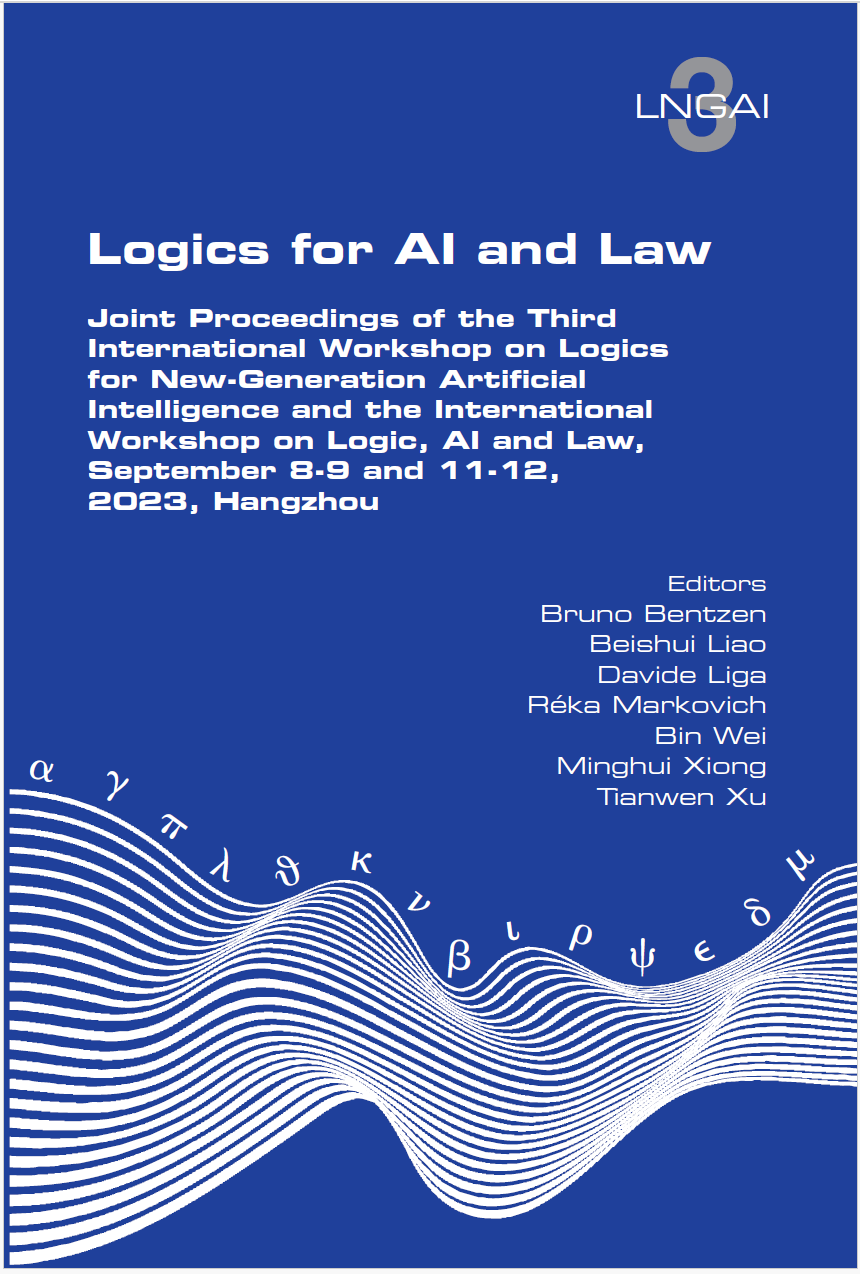- Delegation from the University of Verona Visits Guanghua Law School2025-09-08
- Thailand International Organization Visiting Group of Guanghua Law School, Zhejiang University in 2025 and Camp of the Rule of Law in Matters Involving Foreign Parties2025-08-04
- Zhejiang University Guanghua Law School 2024-2025 Winter Camp in Korea2025-02-13
The International Workshop on Logic, AI and Law (LAIL 2023) was successfully held at the Zijingang Campus of Zhejiang University, on September 11th-12th, 2023. The workshop was hosted by Guanghua Law School of Zhejiang University, organized by Zhejiang University Law & AI Laboratory, co-organized by Zhejiang University – University of Luxembourg Joint Lab on Advanced Intelligent Systems and Reasoning (ZLAIRE) and the School of Philosophy of Zhejiang University. Scholars from different countries had discussions over cutting-edge topics in logic,
AI and law, including legal automated reasoning, machine-readable and computable representation of legal knowledge, and hybrid legal intelligence integrating knowledge and data. This workshop was presided over by Professor Minghui Xiong, the director of the Zhejiang University Law and AI Laboratory, Professor Bin Wei, the executive of the Zhejiang University Law an AI Laboratory, and Professor Xin Sun from the Zhejiang Lab. This workshop is also a satellite event of the Zhejiang University International Conferences on Logic and Artificial Intelligence (ZJULogAI 2023). This workshop is supported by the Fundamental Research Funds for the Central Universities.
The workshop has invited two keynote speakers: Professor Bart Verheij, who holds the chair of artificial intelligence and argumentation as full professor at the University of Groningen; Professor Monica Palmirani, who is the newly elected president of the International Association for Artificial Intelligence and Law, and a full professor of Computer Science and Law at the School of Law, University of Bologna.
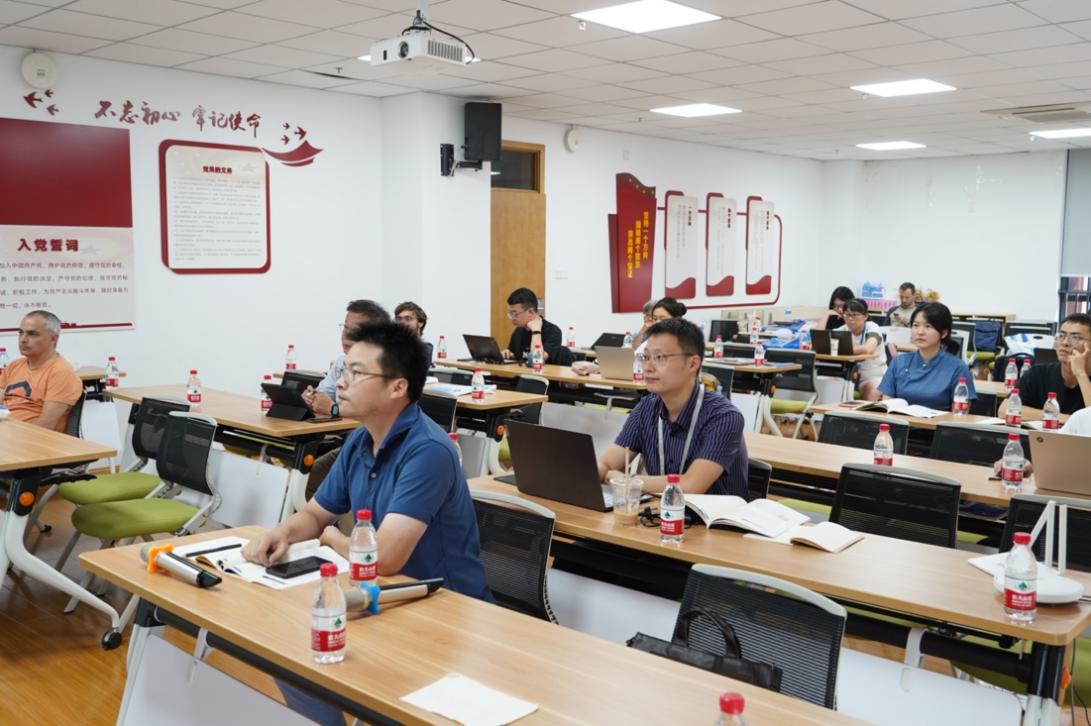
In the afternoon of September 11th, Professor Bart Verheij delivered a keynote talk titled “Hybrid Decision-Making Using Knowledge and Data”. During his talk, he explored the latest developments in AI and their implications for legal decision-making. He emphasized the need to pay specific attention to the connections between logic-based AI and data-driven AI under the trend of rapid development of artificial intelligence. Afterwards, he focused on this point and introduced a hybrid approach combining knowledge and data. Furthermore, Professor Bart Verheij elaborated on his idea of argumentation systems, in which hypotheses were generated and critically discussed.
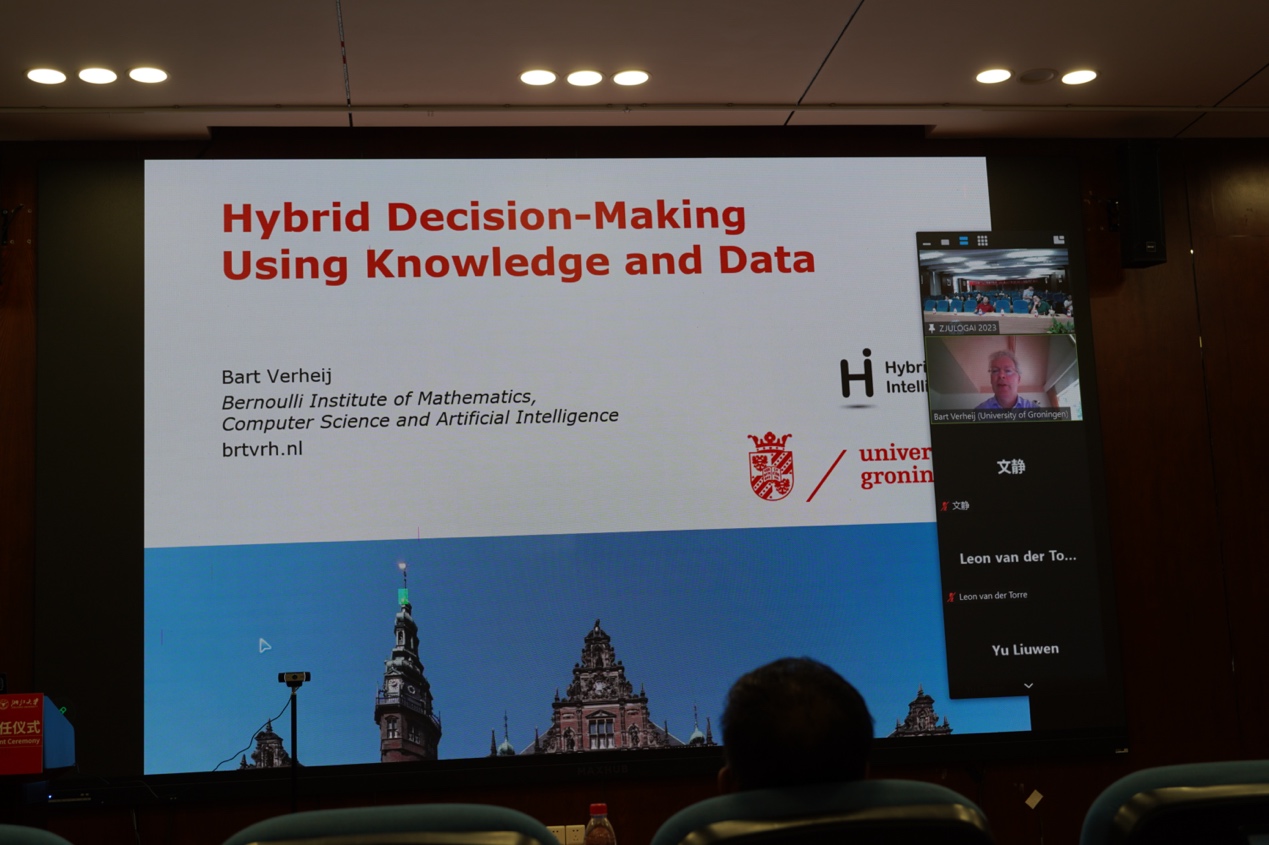
In the afternoon of September 12th, Professor Monica Palmirani delivered a keynote talk on “Symbolic and Sub-symbolic AI for Legislation”. From her perspective, the recent LLM and generative AI have been creating opportunities and risks that the AI and law community should address with respect to the theory of law, the rule of law, and the digital transformation of society. She mainly focused on the development of artificial intelligence in the legislative domain and emphasized that AI techniques applied in the parliamentary environment require additional parameters for guaranteeing democratic principles, transparency and explicability. To tackle these difficulties, she and her team proposed the ERC HyperModeLex which combines the symbolic method and sub-symbolic method to realize the responsible application of artificial intelligence in legislation.
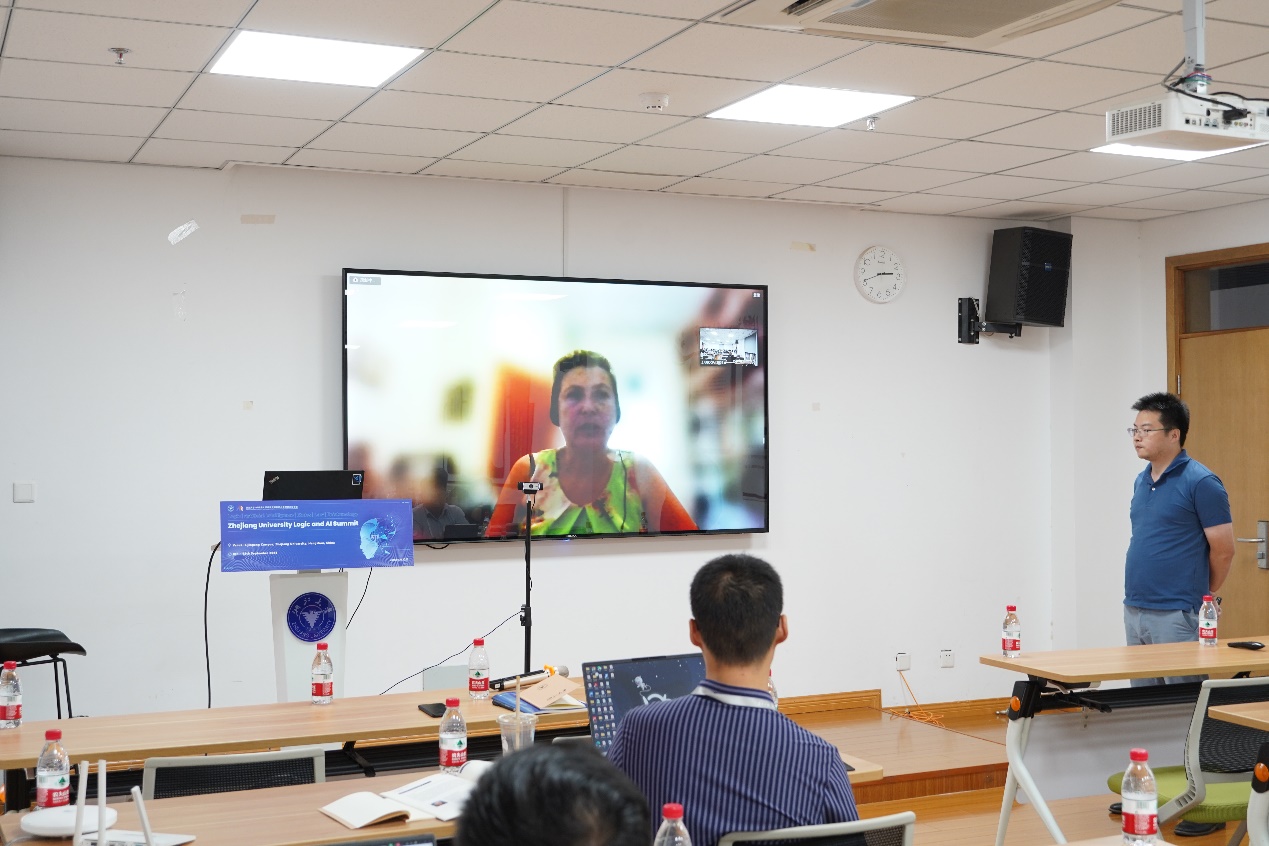
In addition to the keynote talks, The International Workshop on Logic, AI and Law held two specialized sessions on September 11th and 12th. Scholars from Zhejiang University, Sun Yat-sen University, East China University of Political Science and Law, University of Bologna, California State Polytechnic University and Zhejiang Lab shared their latest findings in the field of legal artificial intelligence.
Zihan Niu, a Ph.D. student from Sun Yat-sen University, delivered a talk titled “Computing Logic for Initial Probabilities of Bayesian Artificial Intelligence”. She introduced a calculation model for calculating initial probabilities of Bayesian artificial intelligence. This is because she considered the problem of calculating initial probabilities as a significant challenge when modelling specific domains using Bayesian networks. She pointed out that a calculation model should be constructed from three dimensions to ensure the accuracy of initial probabilities, namely logical requirements, calculation methods, and rational standards. From these three perspectives, she elaborated on how to accurately compute initial probabilities.
Researcher Xin Sun from Zhejiang Lab introduced a logical approach to finding post-quantum digital signatures in his talk titled “A Logical Approach to Post-Quantum Conditional Digital Signatures”. The aim was to address some of the weaknesses in security, expressive power and feasibility, for instance. He began by providing background knowledge of digital signatures and explained the reasons behind the emergence of conditional digital signatures. Afterwards, he explained in detail the logical approach proposed by his team. This approach is able to identify all practically valid signatures from a collection of cryptographically valid conditional signatures.
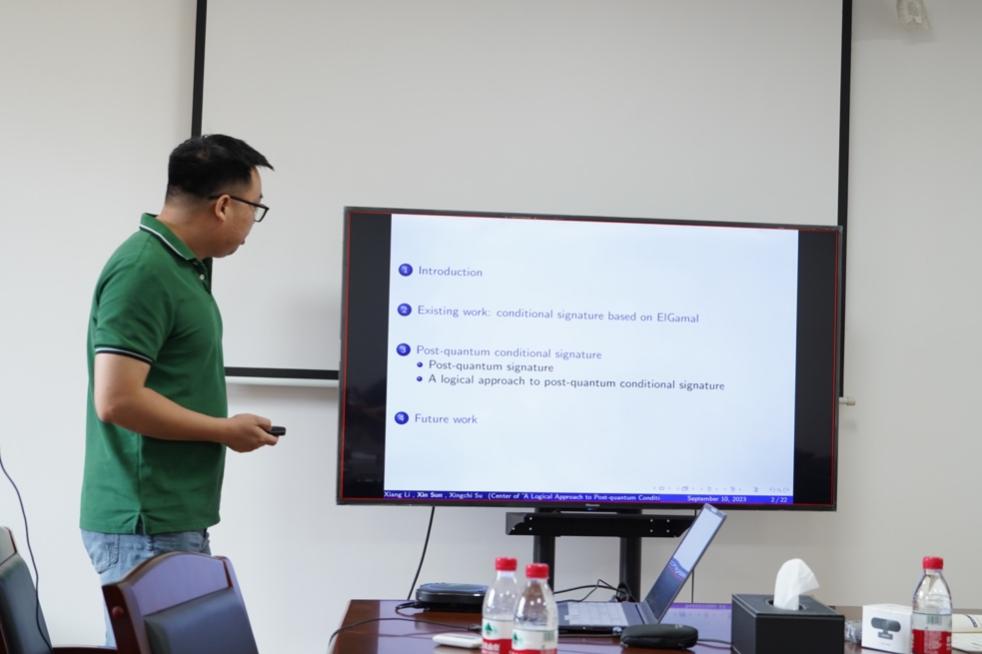
Assistant Professor Ava Thomas Wright from California State Polytechnic University gave a talk titled “A Deontic Logic for Programming Rightful Machines”. In this talk, she introduced a deontic logic for programming rightful machines. She argued that a deontic logic of the law should identify and expose conflicts instead of working around them. This way, the rights and duties that generate inconsistencies can be explicitly qualified, and conflicts could be resolved. She also stated that non-monotonic deontic logic can address legal conflicts. In conclusion, she suggested that her ideas could contribute to the development of rightful machines.
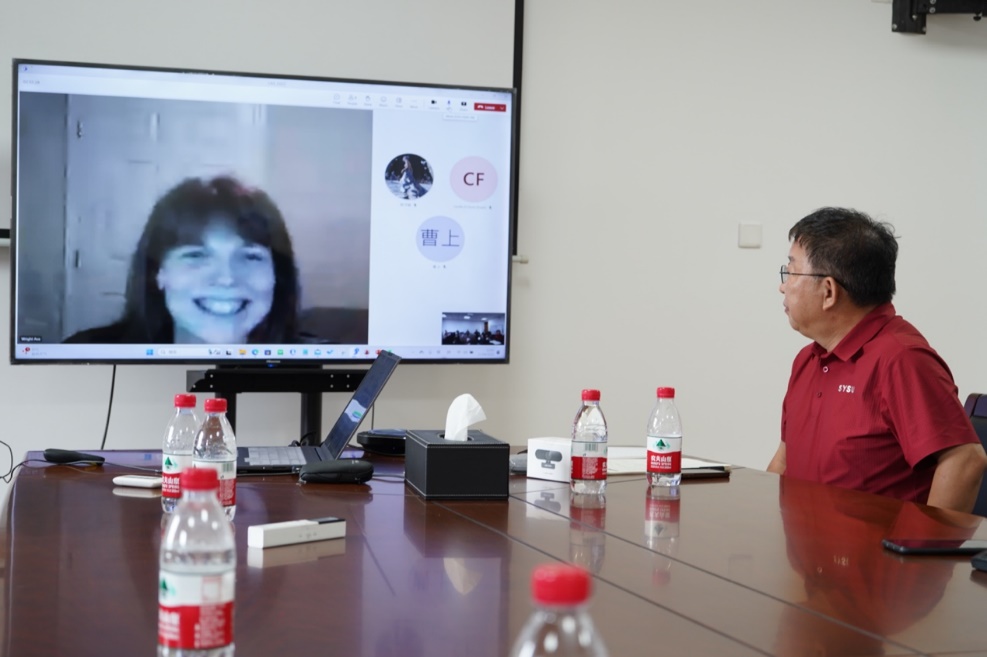
The talk titled “Finding Factors in Legal Case-Based Reasoning” by Cecilia Di Florio, a Ph.D. student at the University of Bologna, is about how to identify factors in legal case-based reasoning. She introduced a language and formal semantics which support reasoning about factors in case-based reasoning and presented a method based on counterfactual reasoning. This method can determine whether a feature is a factor, is relevant or ambiguous.
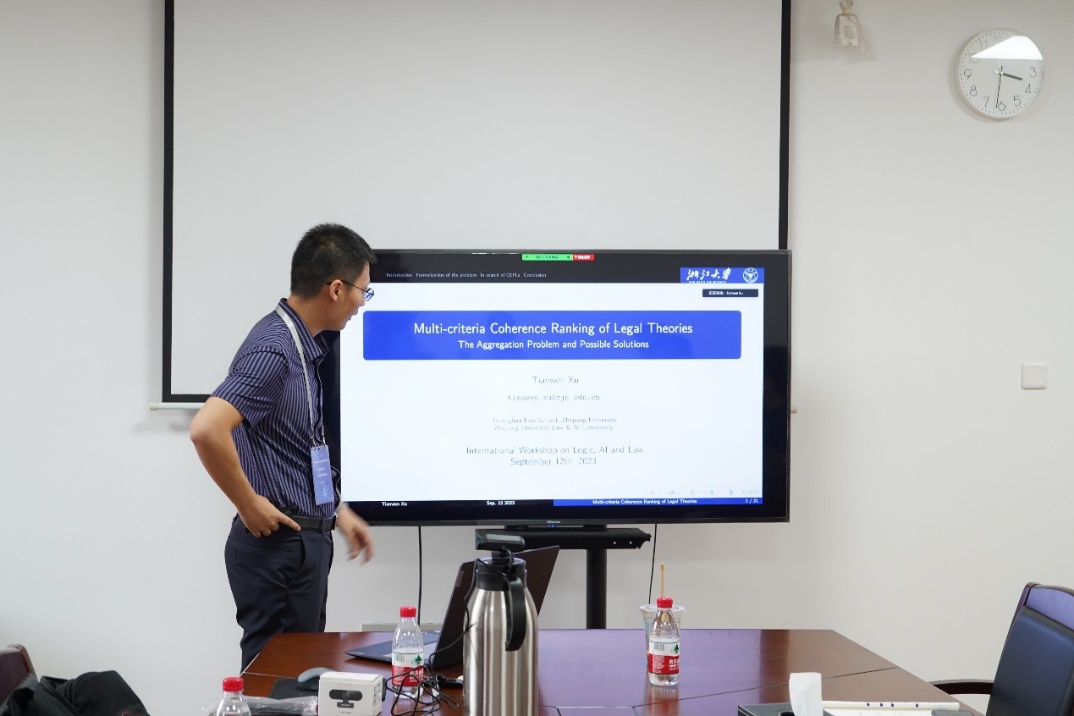
Dr. Tianwen Xu, a postdoc at Guanghua Law School of Zhejiang University, gave a talk on “Multi-criteria Coherence Ranking of Legal Theories”. He thinks that the longstanding challenge of legal coherentism is how a legal decision maker can obtain an overall coherence ranking among legal theories from the multiple criteria. He argued that a multi-criteria decision-making model based on preference aggregation can be employed to address this difficulty. Therefore, he proposed a common problem setting of multi-criteria legal coherence theories as well as relevant rational conditions. From such generalization, he formalized the evaluation of legal coherence in terms of decision matrix. In the end, he explained three coherence evaluation functionals (CEFLs) respectively on the basis of simple majority, Borda count and normalized summation, and provided a detailed examination of their strengths and weaknesses for legal decision-making.
The International Workshop on Logic, AI and Law (LAIL 2023) concluded in the afternoon of September 12th. During the closing ceremony, Dr. Tianwen Xu announced the best paper award went to “Finding Factors in Legal Case-Based Reasoning”. This workshop gathered experts and scholars from the field of logic, AI and law, and sparked heated discussions on topics such as legal decision-making, AI legislation, and legal knowledge representation. It presented the latest trends and future directions in the field, and enhanced international communication and collaboration of the Zhejiang University Law and AI Laboratory. Accepted papers of the workshop have been included in the proceedings titled Logics for AI and Law published by College Publications, jointly with the 3rd International Workshop on Logics for New-Generation Artificial Intelligence, which is also a satellite event of ZJULogAI 2023. The proceedings can be accessed at:
http://www.collegepublications.co.uk/LNGAI/?00003
